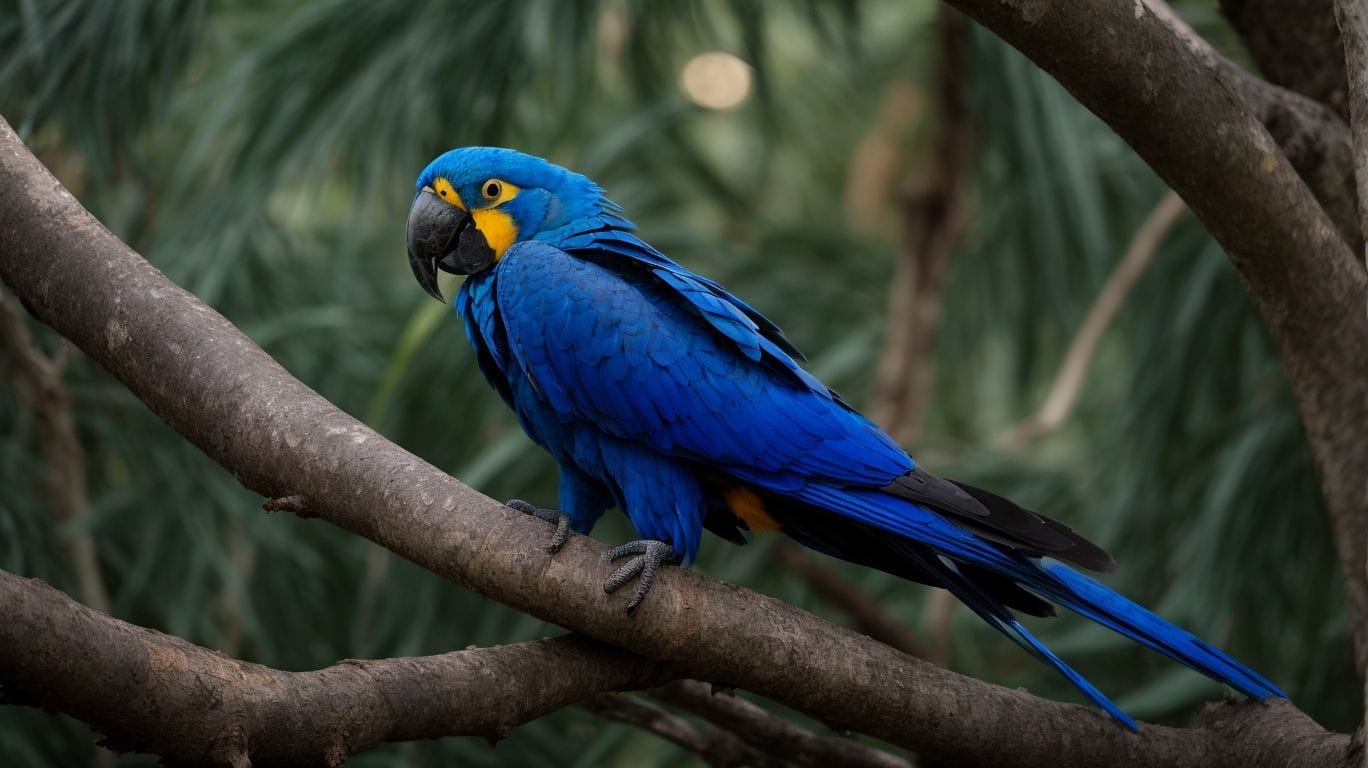Have you ever dreamed of owning a breathtakingly beautiful blue macaw? As gorgeous as these birds are, they represent a significant financial commitment. If you’re thinking about bringing one of these feathered friends into your home, understanding the factors that determine their cost is crucial.
How Much is a Blue Macaw Bird?
Bringing home a Blue Macaw can cost anywhere from $1,000 to $10,000. This considerable range exists because several factors influence the price tag, much like buying a car. A brand-new, top-of-the-line model will cost more than a reliable used car. Similarly, a rare type of Blue Macaw, a young and healthy bird, or one that’s already trained will be pricier than an older bird or one with a less flashy lineage.
Here’s a closer look at the factors affecting Blue Macaw prices:
- Rarity and Species: While the term “Blue Macaw” often refers to the Blue and Gold Macaw, various species fall under this umbrella. Some, like the Greenwing Macaw, are generally more budget-friendly, usually around $3,000. Then there are the fascinating Hybrid Macaws – a mix of different Macaw species – offering a whole spectrum of colors and personalities. These typically fall between $1,000 and $3,000, depending on their unique mix.
- Age and Training: An older, well-trained Blue Macaw proficient in speech and mimicry can fetch a higher price. It’s like paying for experience!
- Origin: Captive-bred birds, those raised in controlled environments, are generally pricier than their wild-caught counterparts. This is because they often have fewer health issues and are already accustomed to humans.
Don’t Forget the Ongoing Costs!
Just like us, these feathered friends need their monthly dose of care – nutritious food, engaging toys to keep their bright minds busy, and regular vet visits to ensure they’re in tip-top shape. Think of it as $100-$200 monthly for their well-being.
Choosing to share your life with a Blue Macaw is a big decision. These intelligent and social creatures thrive on interaction and will quickly become part of the family. But remember, owning a pet, especially one as magnificent as a Blue Macaw, is a commitment. It’s about providing a loving, stimulating environment where they can thrive for many years to come.
The Allure of Blue Macaws: Why Are They So Captivating?
Their captivating beauty is undeniable. These birds are like living jewels, with feathers in stunning shades of blue that would make any artist jealous. Their long, elegant tails add a whole other level of grace to their already impressive presence. Imagine seeing a flash of brilliant blue soaring through the rainforest canopy – that’s a blue macaw in its element.
But there’s more to them than meets the eye:
- Exceptional Intelligence: Blue Macaws are incredibly smart! They live in flocks and have complex communication systems, using calls and songs to convey messages.
- Lifelong Bonds: Talk about commitment – blue macaws mate for life, forming incredibly strong bonds with their partners.
- Playful and Inquisitive: Have you ever seen a macaw play? They’re like feathered toddlers, always curious and eager to investigate their surroundings. Their playful nature makes watching them incredibly entertaining.
- Ecological Importance: Blue macaws are like the gardeners of the rainforest. As they munch on nuts and seeds, they spread those seeds throughout the forest, helping new plants to grow. They’re a vital part of keeping their rainforest homes healthy and thriving.
Think of it this way: blue macaws are like the celebrities of the rainforest – beautiful, talented, and with an important job to do. They need our help to protect their rainforest homes so they can continue to captivate us for generations to come.
Decoding the Cost: What Factors Influence Blue Macaw Prices?
If you’re ready to welcome one of these intelligent birds into your home, understanding the factors that influence their price can help you plan and budget wisely.
Think Beyond the Initial Price Tag
You’ll often see Blue and Gold Macaws priced between $1,500 and $2,500. That usually covers the bird themselves and the cost of getting them safely to you. However, several things can nudge that price up or down:
- Age: If you’re set on a young Blue and Gold Macaw, expect to pay anywhere from $700 to over $1,000. Their age plays a big role, as does whether they’ve been hand-fed, which is a more involved (and therefore pricier) process for breeders.
- Training: A Blue and Gold Macaw who’s already mastered tricks or is super comfortable being handled will naturally command a higher price – sometimes up to $3,000. These skills make them extra special companions.
The Long Haul: A Lifetime of Care
Bringing a Blue Macaw home is a bit like welcoming a feathered family member who could be with you for 30 to 50 years! That’s a lot of joyful years, but it also means being prepared for the ongoing costs of their care. Think quality food, a spacious cage, regular vet visits, and plenty of toys to keep those clever minds engaged. On average, you’re looking at spending around $100 to $200 each month.
The Bottom Line
Before you take the plunge, factor in all the costs associated with Blue Macaw ownership – both upfront and over their lifetime. These vibrant birds offer incredible companionship, but being prepared financially ensures you can give them the wonderful life they deserve!
Beyond the Price Tag: Understanding the True Cost of Owning a Blue Macaw
Their vibrant colors and playful personalities are captivating, but owning a Blue Macaw is about more than just the initial price tag – there’s a whole lot more to consider.
So, How Much Does a Blue Macaw Really Cost?
Think of it like buying a car – you’ve got your upfront cost, but then there’s the ongoing expense like gas and maintenance. Similarly, the price you see for a Blue Macaw is just the beginning. Several things can make that initial price go up or down:
- Age: A young, playful bird just starting its life will likely cost less than a mature, experienced one.
- Rarity: Some types of Blue Macaws, like the impressive Hyacinth Macaw, are harder to come by, making them pricier. If you are curious to know why the Glaceous Macaw and Hyacinth Macaw look nearly identical, despite their distinct origins, you’ll find the answer in this article.
- Lineage: Birds from well-known breeders with proven lineages might cost more – think of it like a pedigree for a dog.
- Training: If a bird already knows some tricks and how to behave around people, you might pay a premium for that training.
The Long Haul: Costs That Keep on Flying
Once you bring your feathered friend home, the expenses don’t stop there. Here’s a breakdown of what you can expect:
- Food and Treats: Just like us, Blue Macaws need a balanced diet to stay healthy. Think fresh fruits and veggies, nuts, seeds, and special pellets designed just for them.
- Housing: These large birds need a spacious cage or, even better, an aviary where they can stretch their wings and play.
- Veterinary Care: Just like our annual checkups, Blue Macaws need regular vet visits, vaccinations, and sometimes even unexpected medical care.
- Enrichment: Blue Macaws are super smart and need mental stimulation to stay happy. Get ready to invest in a variety of toys, perches, and things that let them mimic their natural foraging behaviors.
- Your Time and Love: This is probably the most important (and rewarding!) “cost” of all. Blue Macaws need attention, socialization, and training. They thrive on interaction and forming a strong bond with their humans.
Before You Fly Into Action: Important Things to Remember
- That initial adoption fee for a Blue Macaw can range from a few hundred to tens of thousands of dollars, depending on those factors we talked about.
- Those ongoing expenses – food, housing, vet care, and fun stuff – can easily add up to hundreds or even thousands of dollars each year.
- Owning a Blue Macaw is a big decision! It’s about making a long-term commitment to provide for their physical, emotional, and social needs.
Bringing a Blue Macaw into your life is a wonderful thing, but it’s a decision that needs careful thought. By understanding the true cost – both financially and in terms of time and commitment – you’ll be setting yourself and your feathered friend up for a happy and fulfilling life together.
- Unlock Water’s Symbolism: A Cross-Cultural Exploration - April 20, 2025
- Identify Black and White Snakes: Venomous or Harmless? - April 20, 2025
- Unlocking Potential: Origins High School’s NYC Story - April 20, 2025














